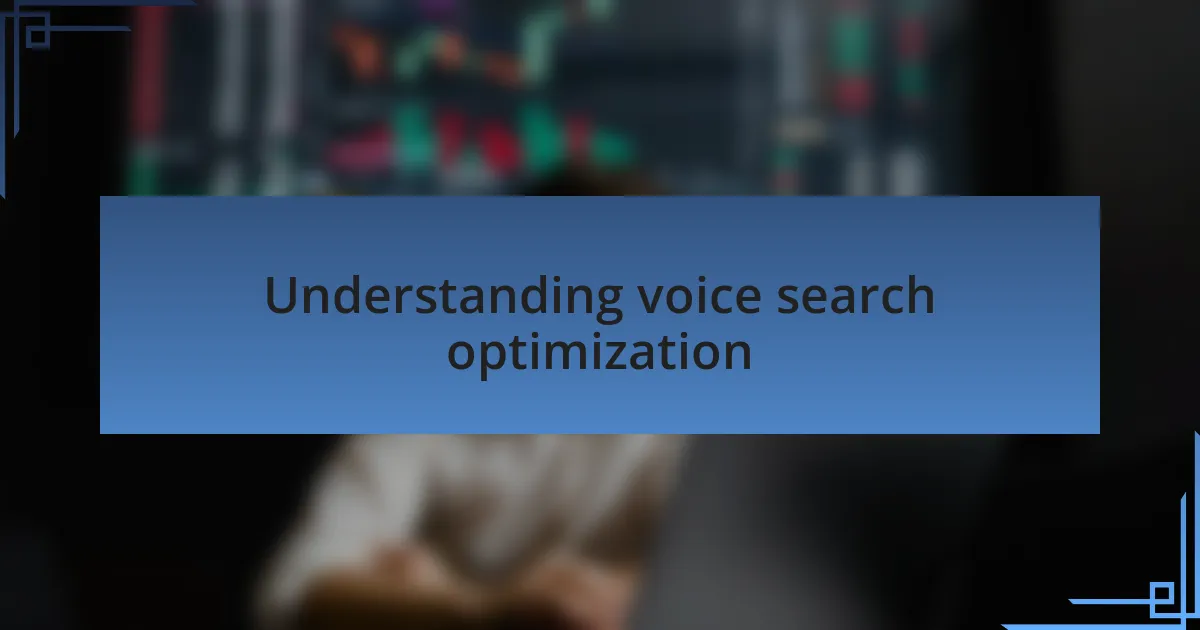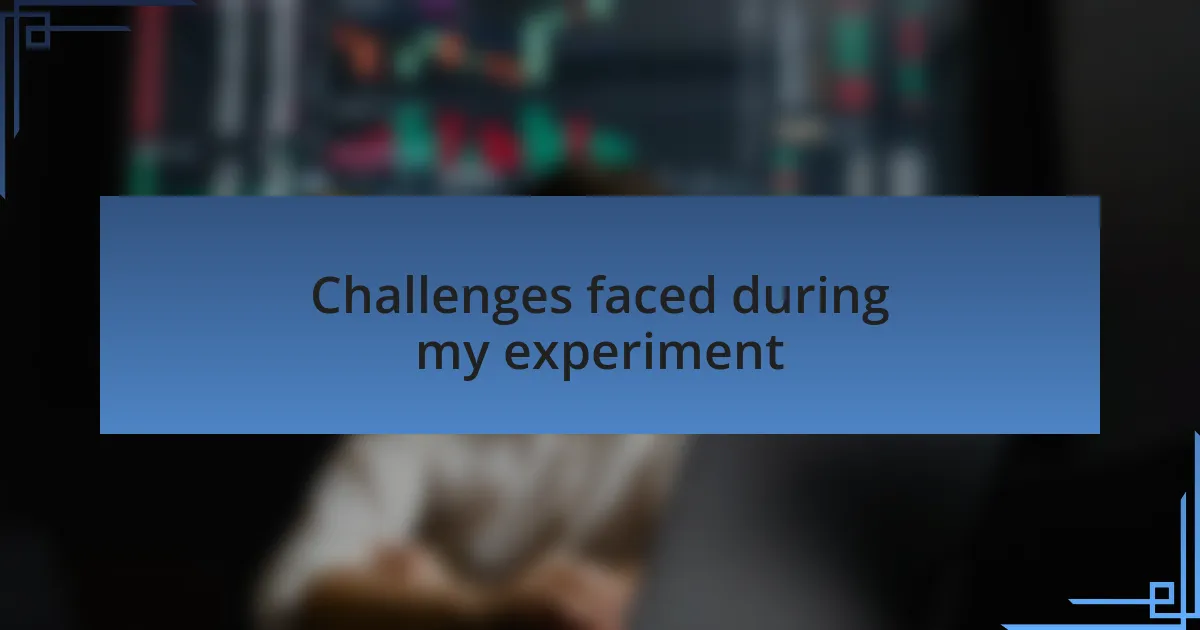Key takeaways:
- Voice search optimization differs significantly from traditional search, requiring a more conversational and relatable approach to content.
- Local search optimization is crucial, as immediate and location-based queries enhance user experience and decision-making.
- Understanding user intent in voice search is challenging, as phrasing and tone can heavily influence search results.
- Keeping up with rapidly changing technology and analytics tools is essential for accurately measuring success in voice search.

Understanding voice search optimization
When I first dived into voice search optimization, I was struck by its rapid evolution. I remember the moment I asked my smart speaker, “What’s the weather today?” and realized how natural and fluid the response was. It got me thinking—how are businesses adapting to this shift in how consumers seek information?
Voice search is fundamentally different from traditional search. It’s more conversational, often using phrases and questions that we’d naturally speak. I found myself wondering, do businesses realize that their audience is speaking to devices as if they were having a conversation with a friend? Crafting content that resonates with this shift means embracing a more human-like dialogue that connects with users on a personal level.
The emphasis on local search was another eye-opening experience for me. I recall needing pizza on a Friday night and just saying, “Find me the closest pizza place.” The immediacy of that query highlighted how critical it is for businesses to optimize for location-based searches. Isn’t it fascinating how this technology can transform everyday decisions, creating a sense of urgency that traditional search methods often lack?

Challenges faced during my experiment
While experimenting with voice search optimization, I quickly encountered the challenge of understanding user intent. One time, I found myself bemused when a simple question, “Best coffee shop nearby,” returned irrelevant results. It made me realize that deciphering what users really mean when they speak is far trickier than it seems. Have you ever noticed how our tone or phrasing can change the full context of a query?
Another hurdle I faced was keeping up with the rapidly shifting technology landscape. I remember pouring over updates late into the night, only to wake up to new algorithms and tools being introduced. It was overwhelming, but the excitement of the evolution kept me on my toes. How can anyone stay ahead in such a fast-paced world?
Data collection presented its own unique set of problems. I vividly recall the frustration of realizing that not all analytics tools are equipped to track voice search queries accurately. It’s that moment of clarity when you understand that measuring success in voice search requires different metrics. I had to rethink my approach to ensure I was capturing the right insights, but it left me questioning how many businesses might be in the dark about their own performance.